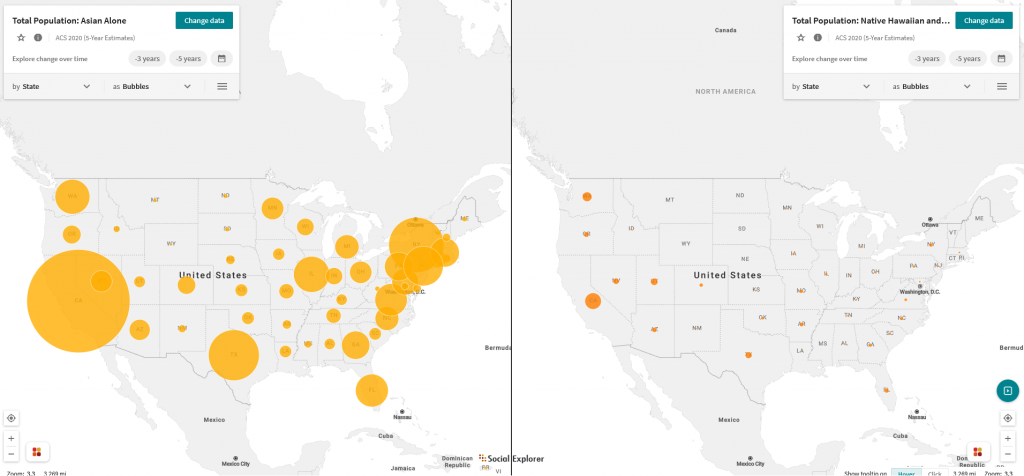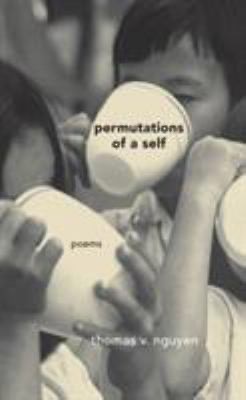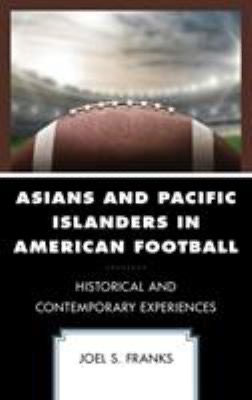May is Asian American and Pacific Islander (AAPI) Heritage Month. The QC Library celebrates AAPI Heritage Month with featured resources in honor of Asian American history, culture, and contributions to social diversity.
The AAPI Heritage Month guide features open and licensed resources, including current facts, print books, and electronic resources (eBooks, streaming media, digital archives, etc.). Below are a few of the featured resources. More information of interest may be found in the Asian Studies guide.
AAPI Population by State
“Per a 1997 U.S. Office of Management and Budget directive, the Asian or Pacific Islander racial category was separated into two categories: one being Asian and the other Native Hawaiian and Other Pacific Islander.” (U.S. Census Bureau, 2022). In 2020, the estimated number of Asian alone or in combination in the United States was 24 million (U.S. Census Bureau, 2022).

Featured Books

Minor Feelings by Cathy Park Hong
New York, New York: One World, 2020
“Part memoir and part cultural criticism, this collection is vulnerable, humorous, and provocative–and its relentless and riveting pursuit of vital questions around family and friendship, art and politics, identity and individuality will change the way you think about our world.”

Amina’s Song by Hena Khan
New York: Salaam Reads, 2021
Winner of the Asian/Pacific American Award for Children’s Literature. “In the companion novel to the beloved and award-winning Amina’s Voice, Amina once again uses her voice to bridge the places, people, and communities she loves across continents.”

Permutations of a Self by Thomas V. Nguyen
College Station: Texas Review Press, 2020
“Much of the poetry comes from Nguyen’s imperfect memory of himself and others as it changes over time.” “The poetry in this manuscript is about accepting that and reconciling what it means to be part of his family.”

Asians and Pacific Islanders in American Football by Joel S. Franks
Lanham, Maryland: Lexington, 2018.
“This book sheds light on experiences relatively underrepresented in academic and non-academic sports history. It examines how Asian and Pacific Islander peoples used American football to maintain a sense of community while encountering racial exclusion, labor exploitation, and colonialism.”
Digital Archives
- PBS.org: “Celebrate the month with a collection of PBS video stories that explore the history, traditions, and culture of Asians and Pacific Islanders in the United States.”
- DiversityInc.com: “A new study reports that 8 in 10 Asian Americans believe they are regularly discriminated against in the United States.”
- Stop AAPI Hate.org: Launched in March 2020, the Stop AAPI Hate reporting center “tracks and responds to hate, violence, harassment, discrimination, shunning, and child bullying against Asian Americans and Pacific Islanders in the United States.”
Streaming Media
- Hmong musicians in America: “This 58-minute video tells the story of two senior musicians from Laos who play instruments and sing for various American audiences, adapting their presentations for Hmong and non-Hmong listeners of all ages.”
- Language of a Nation: How Hawaii Became Part of the U.S., Parts 1-4: “Native Hawaiian filmmaker Conrad Lihilihi presents a four-part historical Docu-series examining the 1896 Hawaiian Language Ban from public education. This series approaches the subject by culminating in a rich and diverse panel of academics in language, history, and politics.”
- Chinese American History: Origins of an Organic Farmer: “Hiu Newcomb, a third-generation Chinese American, is the co-owner and operator of Potomac Vegetable Farms in Vienna, Virginia. In this interview, she discusses her family’s origins in the United States and her start as an organic farmer in Virginia.”
- FORKLIFE: Children of Sticky Rice: “FORKLIFE traces the journeys of immigrant food traditions taking root in the United States, narrated by the D.C. chefs and cooks who carried them here.”


